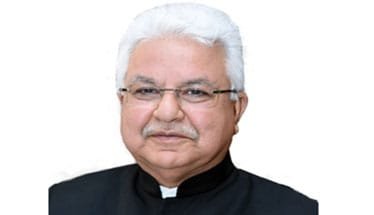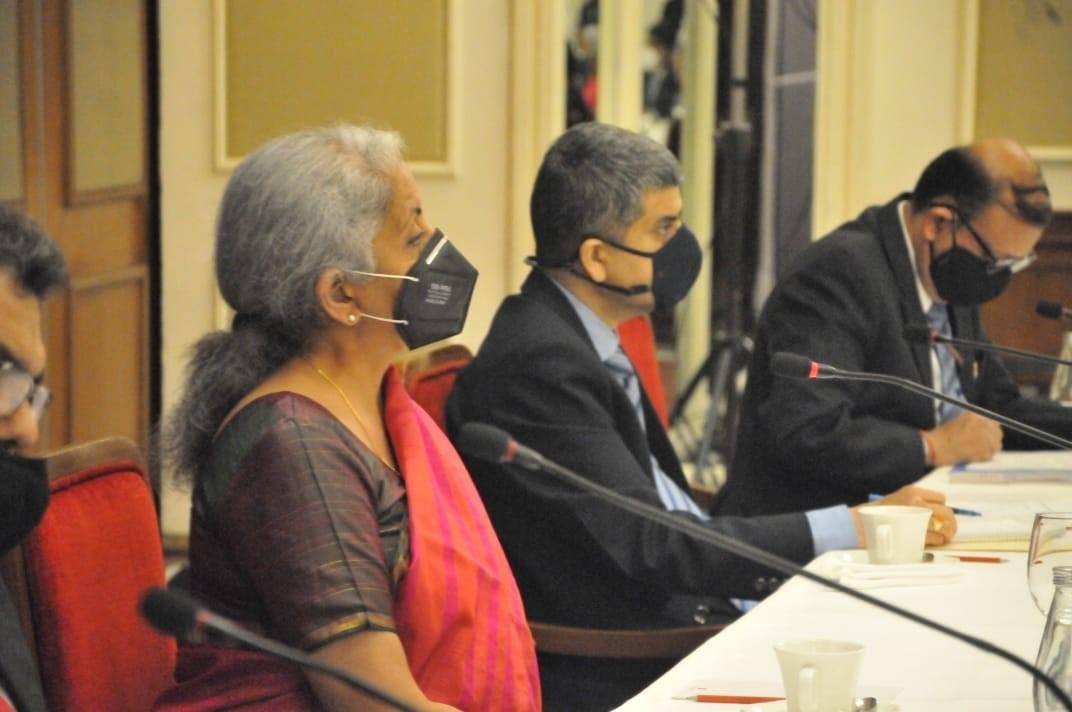Dr Virmani feels that Govt should focus on institutional reforms
The Government’s revenue receipt for April to November 2021 was about Rs.13.6 lakh crores which is 75% of the budget estimate and higher than the 40% collected during the same period of last year, according to Vikram Singh Mehta, Co-Chair, Economic Affairs Committee of PHDCCI.
The Government has also received Rs.9,000 crore from disinvestment in April-November 2021 out of the Rs.1.75 lakh crore target for FY 2022, he told an industry supported webinar on 11 Jan 2022.
Mehta also pointed out that there is a lot of scope for additional spending as the budget allocated for CAPEX last year is not yet fully utilised, and the additional spending on CAPEX will give a boost to a lot of sectors which have been negatively impacted during the pandemic.
Meanwhile, PHDCCI President Pradeep Multani noted that the Union Budget 2022-23 is being presented at a very crucial juncture now, when the economy is facing the third wave of the pandemic.
The industry expects easing of compliance and a level playing field to become more competitive, he added at the webinar “Shadow Budget 2022-23′ organised by PHD Chamber of Commerce and Industry (PHDCCI) in collaboration with EGROW.
The Union Budget, to be presented in parliament on 1 Feb 2022, needs to be on measures to refuel the consumption demand, creation of employment avenues and hassle-free credit to the MSME sector, said Multani.
Multani suggested that the Government needs to introduce lucrative tax paying benefits such as providing a threshold of pension (after their retirement above the age of 60 years) to incentivise regular taxpayers.
He felt that a reduction in the Basic Custom Duty for the manufacturing inputs will make it more competitive and help business sentiments.
Through these measures, India would be able to achieve a 7% growth rate in the next financial year FY2023 to achieve the US$$5 trillion economy target in the future.
PHDCCI former President Alok B. Shriram highlighted that some sectors like construction and tourism still need a lot of help as they have not yet recovered completely from the pandemic.
He added that along with providing support to the start-ups, there is also a need to support the existing industries as they are the job and wealth creators of the economy.
There is an urgent need to reduce the cost of doing business for making the micro, small and medium entrepreneurs most competitive against the corporate sector, stressed Dr Arvind Virmani, Renowned Economist and Chairman, EGROW (Foundation of Economic Growth and Welfare).
Dr Virmani noted that systematic efforts have been taken to reform and liberalise production and service sectors like agriculture, space, geo-mapping, and infrastructure by the Government.
But he felt the Government should focus now on institutional reforms to provide access to better quality of public services.
According to Dr Virmani, the Government needs to focus on reducing the logistics costs in the country as these are significantly high as compared with many economies. He stated that though the investment inflows and the export markets have recovered, private consumption is yet to recover fully.
He further informed that consumption recovery can be accelerated through tax reforms, which will in turn accelerate job creation. He stated that the GST council needs to focus its attention on long term income maximisation rather than short term which it is doing so now.
The ‘Shadow Budget 2022-23’ was organised by the PHD Chamber of Commerce and Industry (PHDCCI) in collaboration with EGROW.
The Finance Minister Nirmala Sitharaman is scheduled to present the budget for 2022-23 on 1 Feb 2022 in parliament. fiinews.com









